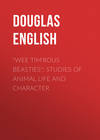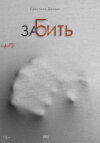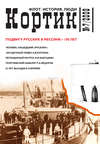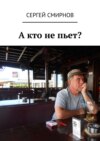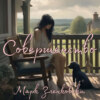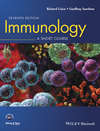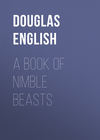Читать книгу: «"Wee Tim'rous Beasties": Studies of Animal life and Character», страница 2
Still, he could scarcely move his limbs, for the soil lay thick and heavy around him. After a prolonged effort he disengaged his fore feet, and started to scratch himself free. On one side of him lay the dead body; he worked vigorously along it. He was checked, however, by an obstacle beyond his strength. The body was enclosed by a tight-fitting ring, and on this he could make no impression.
Fastening his tiny fingers in the fur on one side, and scraping with his free fore-paw on the other, he forced his way upwards. The soil grew lighter above him, and in a few minutes he had reached the upper air, and lay panting on the surface.
He then tried to pick up his position. The mole-run had brought him some two hundred yards, nearly to the edge of the marshland. Across the boundary rose a small plantation. Here he determined to seek shelter. He had but fifty yards to go, and started to glide stealthily from tuft to tuft.
On all sides the ground was alive with tiny insects. The larger kinds seemed mostly to be sleeping. He ran full tilt against a drowsy butterfly, sweeping its close-folded wings through half a circle, as he passed. They sprang back with a jerk, but the insect itself remained motionless. Grasshoppers clung to every other grass-stem; their eyes were dead and staring. Here and there he saw a spider gripping its support and waiting for the sunrise.

HE TRIED TO PICK UP HIS POSITION.
Once he found himself confronted by a bloated toad. The amphibian surveyed him solemnly, but never moved. A low hiss whistled through the grass. He crouched in terror while four feet of grass-snake undulated by. A shrewmouse broke cover in front of him, followed by its mate. The air resounded with shrill defiant squeaks as the two bunchy velvet balls rolled over one another out of sight.
So he worked his way along towards the boundary; pausing at intervals to gnaw at the growing plant-stems, or to sit on his haunches and nibble some fallen seed which took his fancy.

VOLE-LIKE THIS LATTER WAS, YET HE WAS NO ORDINARY VOLE.
It was close to the plantation that a familiar movement in the grass seemed to betray the presence of a near relation. Hastening towards it he found himself confronted by a total stranger. Vole-like this latter undoubtedly was, yet he was no ordinary vole. Delicate chestnut fur, brilliant white feet, a whitish waistcoat, and a paste-coloured two-inch tail proclaimed the red vole at once.

In size there was little to choose between them, and they sat gazing at each other for some moments stolid and undismayed. Yet, despite the equality of fighting weight, he felt himself somehow the inferior creature. His thoughts ran on the old legend of the field-vole who mated with a wood-mouse of high degree, and whose descendants to this day bear the marks of their noble origin. So, when the stranger turned and leapt lightly into the undergrowth that fringed the wood, he humbly tried to follow.
That was no easy matter, for, where the other jumped, he could only scramble, and on the flat he felt himself hopelessly outclassed. Still, once beyond the outskirts of the wood, the tangled thickets gave way to something less luxuriant, and he could sight his leader more frequently. All at once he checked himself, and, with a sudden access of natural caution, flattened himself to earth. He had blundered into the red-vole community.

A WOOD-MOUSE OF HIGH DEGREE.
Five small active forms were gliding hither and thither among the fallen leaves. They were too busy to notice him, and were evidently working with some method, for, at intervals, one or the other would make his way slowly to a definite spot, and then return light-footed to his task. He edged a little closer to observe them. Then the meaning of it flashed upon him. They were nut-hunting.
Sometimes the nut was carried in their mouths, sometimes rolled along the ground, sometimes wedged between the chin and fore-paws, but, when they reached their goal, it seemed to vanish.

SO, WHEN THE STRANGER LEAPT LIGHTLY INTO THE UNDERGROWTH.
Of this there could be but one solution. The nuts were being taken to a burrow-entrance. Curiosity overcame him, and, seizing a quiet moment, he slipped down the burrow. It plunged abruptly for about a foot, passed under a curving root, squeezed between some small root branches, and terminated in a double compartment. Three nuts hit him from behind as he descended.

HE HUMBLY TRIED TO FOLLOW.
To his left lay the nest, a mass of feathery grass and mosses. He slipped into it, and, as he cleared the shaft entrance, the three nuts followed with a rush. He lay there quiet until his eyes had become accustomed to the semi-darkness.
Then he perceived that he was not alone. The right-hand portion of the hollow held a lady tenant. She had her back to him, and was busily employed in the storeroom. He could just distinguish that the farthest recess held a great pile of nuts, and that her business was to collect the nuts as they toppled down the shoot, and stack them in as small a space as possible.

SHE PAUSED, AND HE SAW HER SNIFF SUSPICIOUSLY.
Suddenly she paused, and he saw her sniff suspiciously, she swung round, and he was discovered. He had barely time to back into a corner, before she was upon him, and at the first nip, he knew that he had met a better vole. Over they rolled, scratching, biting, tearing. Her sharp, chisel teeth met in his ear and tore the half of it away. The blood blinded him, but he stuck grimly to his task.

SHE SWUNG ROUND, AND HE WAS DISCOVERED.
Physically he was at an immense disadvantage. His clumsy movements availed but little against the fierce agility of the red vole. Time after time he snapped at her and missed; for, even as he aimed, she could swing her lithe body round and leap upon him from behind. Nor, when they grappled, could he retain his hold on her. Against the leverage of those powerful hind legs he could do nothing.
His cause, moreover, was a bad one. Was he not the intruder? and when was ever mercy accorded to such among four-footed things? His strength was fast failing when he fled, hotly pursued, up to the open once more. He only exchanged one foe for four. Lacerated, faint, and bleeding, he crouched, waiting for their attack. It was a short and savage one. An owl hooted above, the red voles rushed to cover, but he remained behind.
He had only really felt one bite. A pair of razor teeth had nipped his spine, and—he had hardly noticed a dozen other wounds. He was terribly thirsty, and struggled to reach a dewdrop which hung above his head, but his hind legs were paralyzed and powerless. Gradually his eyelids drooped, and he sank slowly over on one side. It was growing very dark and very cold.
THE APOLOGY OF THE HOUSE SPARROW
[Note.—It would not be morally profitable to describe how I learnt Sparrowese. The language of the sparrow is the language of the gutter. I have Englishized it throughout.]
“I was the odd egg, for one thing,” said the sparrow. He was speaking with his mouth full, as usual.

HE WAS SPEAKING WITH HIS MOUTH FULL, AS USUAL.
“What on earth do you mean by that?” I replied.
He laughed offensively. “Do you know anything about sparrows?” he sneered.
I confessed I did not know much.
“I never knew any one write about them who did,” he went on. “What was I saying when you interrupted me?”
“You said you were the odd egg,” I replied. “What is an odd egg?”
“Do you know what a clutch is?” His intonation was insolence itself.
“A clutch,” said I, “is, I believe, a sitting of eggs destined to be simultaneously hatched.”
“Perhaps you may have noticed,” said he, “that in our family”—his every feather bristled with importance, and the white bars on his wings were beautifully displayed—“we do not confine ourselves to a single monotonous pattern of egg.”
“A string of variegated sparrows’ eggs was one of my earliest treasures,” said I.
“Well, then, if you know that much, and don’t know what the odd egg is, you must be a fool,” said he.
It is hard to be insulted by a sparrow, and, as it is, I have toned down the expression, but I preserved a meek silence.
“Any one,” he went on, with bland condescension, “who has seen a few clutches of sparrows’ eggs, and has not noticed that there is an odd egg in each clutch, must be an uncommonly poor observer.”
“It is not in the books,” I ventured to protest.
“Books!” he screamed, “books! What do the people who write books know about sparrows? And yet, do you know that there has been more ink spilt over sparrows than over any other bird? that laws innumerable have been passed concerning sparrows? that associations have been formed to exterminate sparrows? that—that—that–”

THERE IS AN ODD EGG IN EACH CLUTCH.
The excitement was too much for him; he had been keeping time with his tail to this declamatory crescendo. With the last effort he cocked it a shade too high, lost his balance, and landed, considerably ruffled, some four feet beneath his own reserved and particular twig. His eye was on me, and I felt it too serious a matter for laughter. He made what was evidently intended for a dignified ascent, choosing, with minute exactness, the steps he had originally employed on my approach. It was a full minute before he broke the silence, and for that full minute I had to preserve my gravity.

IT WAS A FULL MINUTE BEFORE HE BROKE THE SILENCE.
“Have you any clutches by you?” he said at last.
I had, and fetched them.
“Now,” said he, “look at that one, four dark and one light; look at this, four light and one dark; and at this, six light mottled, and one among them with a few black spots.”
I had to admit that it seemed true.
“True,” said he, “of course it’s true. Didn’t I tell you that I was the odd egg myself?”
“Well, one of you had to be the odd egg, I suppose?”
“Wrong again,” said he. “What you don’t seem to realize is, that the odd egg is nearly always addled; in my case it wasn’t.”
“Then, in your case,” said I, “there was one more mouth to feed than your parents expected. How did they take it?”
“Mother kept it quiet as long as she could,” said he.
“And father?”
“Father didn’t find out for a day or two, and when he did, he pushed one of my brothers over the side of the nest—he did holler for his life!”
The little beast was actually chuckling at the recollection.
“He hung head downwards by one leg, and wouldn’t let go till father dug his beak into him.”
“Brutal,” I murmured.
“Brutal! not a bit of it. You can’t feed more than a certain number of nestlings; besides which, there wouldn’t be room in the nest. As it was, I fell out before I could fly.”
“What happened then?”
“Why, the old folks came and fed me, and helped me back again the shortest way up the bark. Brutal, wasn’t it? A martin wouldn’t do that.”
“Which reminds me,” said I, “that you were not born in a martin’s-nest. Are trees the fashionable quarter just now?”
“They’ve come in more since thatched roofs went out,” said the sparrow. “It’s tree or martins’-nests nowadays.”
“You do really drive away the martins, I suppose?”
“Yes,” he sniggered; “poor, dear little martins! Look here,” said he, and his voice changed from a snigger to vicious earnest. “We sparrows are just about sick of being accused of bullying martins. White of Selborne started it, but he didn’t know what it would lead to. Would you like to know the truth of the matter?”
It was one of the things I did want to hear, and I nodded assent.
“The disappearance of martins is a loss really of national importance,” he began, in a sickly whine. “It is a shame to see how the pretty house martins are decreasing in this country at the hand of the sparrows,” he continued. “He drives away our migratory and pre-eminently useful insect-eating birds, even turning out the eggs of the owners and using the locality for its own nest.”
He was obviously quoting from the pro-martin authorities, and I stopped him.
“I have heard all that before,” said I.
“There’s a fair amount of it about, pages and pages,” said he; “there’s one story, for instance, of twenty or thirty martins blocking up the bold, bad sparrow inside the nest, which the said bold, bad sparrow had usurped. What do you think of that?”
“I think it is untrue,” I promptly replied.
“It is untrue,” said he; “but it isn’t far away from truth, for all that. Many a dead sparrow has been found in a martin’s-nest, and many a time the entrance was too small for a sparrow to have got out of; but, still, it wouldn’t take a healthy sparrow long to break up a martin’s-nest.”
“What has happened then?” said I.

ONE PART OF WHITE ARSENIC TO FIFTEEN PARTS OF CORN-MEAL, IS THE USUAL RECIPE.
“Why, of course, the sparrow was dying when it got in. One part of white arsenic to fifteen parts of corn-meal is the usual recipe. It is illegal, as you doubtless know, but it has the advantage of acting slowly. Of course, if we saw a friend of ours writhing about in the feeding-ground, we should give that feeding-ground a wide berth.”
“I see,” said I; “but what about the entrance being plastered up?”
“It is never quite plastered up,” said he; “and even if it was, a healthy, able-bodied sparrow could knock the whole thing to pieces with two pecks. No; when there are any disputes as to proprietorship between sparrows and martins, the martins have a trick of waiting till the sparrow is out, and then narrowing down the entrance so that the sparrow will have a job to get in decent nest material. When a live sparrow is in possession, he very soon lets callers know it. The martins, in these cases, miss their usual greeting, and probably conclude that the sparrow is away, whereas he is really dead inside. That’s just about the whole truth of the matter.”
“But why on earth,” I protested, “can’t you build a proper nest for yourself?”
“I don’t know why it is,” said he, “but the mere thought of a martin makes a sparrow feel bad inside. Why does a dog naturally go for a cat? One thing is quite certain, however. We both fancy human dwellings, and, if we left the martins altogether alone, they would have all the best places in no time. Now, that wouldn’t be fair at all. I appeal to you as a fellow Briton. We are British born and bred. We stay with you all the year round. The martin only comes to look you up in the fine weather. Then he puts on his showy foreign manners, and you say, ‘How charming! so different to those dirty, vulgar sparrows!’ but, as soon as the weather breaks, off he goes. Now, a hard winter is no fun for the sparrows. We are glad of any shelter we can get, and the martins’ deserted nests come in very handy. Not only do we use them, but we keep them from falling to pieces, line them with feathers, and make them into snug winter quarters. Back comes the martin in the spring. ‘Dear me!’ he says, ‘most gratifying, I am sure. So kind of you to act as caretaker. Why, I declare, the old place looks better than when I left. Of course, you won’t mind my coming in at once. I’ve got to make my family arrangements for the season.’ ‘Not quite,’ says the sparrow. ‘If it hadn’t been for me, this nest would have been down in the last gale. I’ve put money into this nest, and you can jolly well go and build another. You ought to have stayed to look after it, if you wanted it again.’”
“That is all very well,” said I; “but it seems to me that there ought to be room for both of you.”
“Well, there isn’t,” said he, “and Nature has worked it out that there shan’t be, and if you write a thousand letters to the Field, you won’t alter that.”
“Suppose the martins got the pull over the sparrows, do you think it would be better for things in general?”
“You mean better for yourself,” said the sparrow, sharply.
On reflection, I came to the conclusion that that was just what I did mean.
“I don’t believe an increase of insect-eating birds would do you much good,” he went on. “Suppose, for instance, the ichneumon flies were decimated, what a time it would be for the caterpillars! How would some of your plants get on if there weren’t enough insects to fertilize them?”
I felt it was time to shift my ground. “Let us get back to your early history,” said I. “What was the nest like?”
“It was in a hole of a tree-stump,” said he. “A silly sort of place, I think, not ten feet from the ground. Now I always build as high as I can—just underneath the rooks’-nests, in fact. You’re safe from boys; they don’t shoot your nest to bits for fear of shooting the rooks’-nests too; and there’s abundance of insect food on the spot. The nest itself was mostly feathery stuff, though I remember a piece of pink paper, which used to tickle me. I suppose the colour of it took the old birds’ fancy. Of course the nest was distinct from the casing. That was the usual straw. I think it is the casing of sparrows’-nests that you humans object to as untidy.”
“We chiefly object to the portion which stops up the water-pipes,” said I. “What did you have to eat?”
“Insects, I expect, to start with. At least, that is what I always give my youngsters; then, as my gizzard strengthened, small, hard seeds; then bigger ones; finally, corn itself. That is my favourite diet at the present time. Three parts of what I eat is corn, the rest is insects, seeds, and scraps.”

IT WAS IN A HOLE OF A TREE-STUMP.
“You can get corn all the year round?”
“Oh! easily enough. In the fields, when it is growing; round the wheat-stacks later, or among the poultry—people don’t shoot into the middle of the poultry—anywhere, in fact.”
“And you really like corn better than anything?”
“There is nothing quite so nice in the world,” said the sparrow, “as fresh, young corn in the ear, which you can just squeeze the juice out of and then drop.”
“And are you aware of the amount of damage which you do to the poor, struggling farmer?” said I, assuming a judicial severity which I was far from feeling.
The flippancy was infectious.
“A recent estimate places it at £770,094 per annum,” said the sparrow. “Just think of that!”
“In this country alone,” said I. “You seem to forget America, Australia, South Africa, and all the other places to which you have been unhappily introduced as an insecticide.”
“You seem to forget,” he retorted, “that it was you yourselves who made the introduction. You tried to improve on the natural balance which was ordained for this string of countries, and a pretty mess you have made of it. Now you want to crown your folly of introducing the sparrow where Nature said it was not wanted, by exterminating it where Nature says it is wanted—and that’s here.”
“I don’t think any one has suggested that you should be exterminated,” said I.
“‘To lessen their numbers in our country, every possible means must be had recourse to.’ There’s a pretty piece of grammar for you.”
He was obviously quoting again.
“You couldn’t exterminate me if you tried, and, therefore, you very properly don’t suggest it. I have been called the Avian Rat, and I am the Avian Rat. You can no more get rid of me than you can of my four-footed counterpart. It would be a bad day for you if you could.”
“But you must admit that both you and the rat are increasing in numbers, and, therefore, in destructiveness. What is to be the end of it?”
“The end of it will be that you will preserve our enemies instead of shooting them at sight.”
“Meaning?”
“Hawks, owls, weasels, and so on.”
“But hawks would never come near the towns?”
“We aren’t in town the whole year round. Even the cockneyest of sparrows has his month or two in the cornfields. I don’t mind telling you that one of the reasons we have for clinging to human habitations is that we are thus sure of sanctuary. Our natural enemies will always be welcomed with a gun. They know that, too, and keep away. Make it an offence to kill a bird or beast of prey, and you will see a difference in the rats and sparrows.”
“What about the pheasants?” said I.
“There would be fewer pheasants,” said the sparrow; “and, if you only knew it, they would taste better, if there were.”

YOU HAVE BEEN SHOT AT.
“Sparrow,” said I, “to speak disrespectfully of the battue places you at once outside the pale. You are an Avian Rat. You do consume an inordinate quantity of corn. Since history began you have been an impudent parasite on man. As a hieroglyphic character you signified the enemy. Choleric old gentlemen have been roused to frenzy over your misdeeds. You have been shot at, trapped, poisoned, netted. Like the chafers, you have been excommunicated. You have been made into a yearly tribute, by the thousand. Laws have been enacted to compass your destruction, letters have been written to the Field, and yet—and yet—an inscrutable Providence has decreed that you shall survive, increase, and multiply. What good do you do?”

TRAPPED.
“Have you ever heard me sing?” said the sparrow.
“Sing!” I cried; “that sempiternal twitter, that intolerable chirrup that destroys the best and latest hours of sleep! Do you call that singing?”
“What bird would you prefer?” he blandly inquired.
I considered for a moment. The grim possibility of ten thousand nightingales yodelling in chorus, of ten thousand skylarks, or of ten thousand cuckoos, determined my answer.
“I cannot think of one,” said I. “But this is no merit on your part, it is merely a qualification of evil.”

NETTED.
“I thought you would acknowledge that,” said the sparrow. "But, seriously, you ask me what good I do, and I will tell you. That my infant food consisted entirely of insects and caterpillars you already know. Turn the statistician to work who has so cunningly reduced my corn-depredations to pounds, shillings, and pence, and he will assuredly find that the insects devoured by the infant sparrow population in a year will amount to hundreds of millions. These, mind you, are insects large enough to be brought to us in our parent’s beaks.

AVIAN RAT, INDEED! RATHER AVIAN SCAVENGER!
“But what of the insect eggs devoured by us in winter, when most of your pretty insect-eating birds have flown to where the insect is commoner, fatter, and fuller-flavoured? It is we stay-at-home British birds that really keep the insects down. I know that insect eggs do not appear in our poor dissected gizzards. How should they? How would you recognize their remains, O sapient sparrow-shooters? But they are there, for all that. Those blessed with eyes can see us hunting for them in the fallen leaves, among the garbage, in the crannies of the very pavement.

I FELT ASHAMED.
“What, again, of weed seeds in general, and knotgrass in particular? Avian Rat, indeed! rather Avian Scavenger, who draws his hard-earned pay in corn. Can you grudge him a few paltry millions? Would you exterminate him because in your blindness you only note the debit side? There is a Power behind the sparrow. It is Nature herself, and against Her fixed resolve nothing avails.”
He had worked himself into an incoherent frenzy; but, even as he relapsed from this fierce air of consequence to his vulgarian self, I felt ashamed.
Покупайте книги и получайте бонусы в Литрес, Читай-городе и Буквоеде.
Участвовать в бонусной программе
